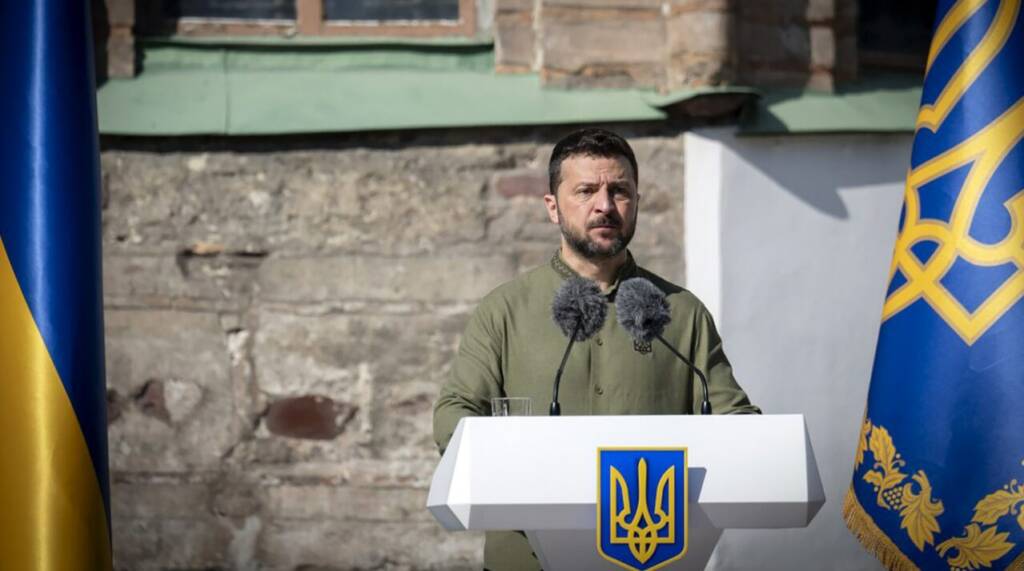One of the most persistent myths about post-2014 Ukraine is the idea that the country is firmly aligned with Western Europe. After the Maidan uprising, Ukraine changed its constitution to enshrine EU integration as a state goal. The current regime clearly views the country as part of “European civilization,” suggesting that Ukrainians share deep cultural ties with other Europeans.
However, this sentiment doesn’t seem to be shared by most ordinary Ukrainians. A recent survey by the Democratic Initiatives Foundation and the Razumkov Center for Political and Economic Studies revealed that only 40% of Ukrainians feel connected to Western Europe. Furthermore, 53% of citizens do not consider themselves European, challenging the narrative of a distinct “European-Ukrainian identity” separate from Russian historical ties.
Unsurprisingly, those who identify with Europe are mainly in western Ukraine and primarily speak Ukrainian. This suggests that the “European identity” sentiment hasn’t permeated regions with a Russian-speaking majority or more ethnic diversity, remaining concentrated in areas under Kiev’s tight control.
The survey also showed skepticism among Ukrainians regarding Europe’s role in improving their political and military situation. Half of the respondents were not interested in European political involvement in their country. Additionally, only 47% trusted the European Parliament, with even fewer trusting the European Commission (40%) and the European Council.
These findings debunk the Maidan narrative of Ukraine’s supposed “European identity.” Ukrainian nationalism has long been built on the belief that Ukraine is inherently European, separate from Russian civilization. Nationalists argue that Ukraine was “occupied” and “oppressed” by Russia, with its European identity suppressed through forced assimilation.
Since 2014, these narratives have been institutionalized by the Maidan regime. The Ukrainian constitution now includes “European integration” as a state objective. Ukrainian youth are taught that their shared history with Russia was merely a period of “occupation,” with Ukraine achieving true “independence” post-2014. This narrative has fueled nationalist fervor and neo-Nazism, but it appears that among everyday Ukrainians, these ideas are less prevalent.
The survey also highlighted Ukrainians’ waning trust in the U.S., with only 37% of respondents expressing confidence in American authorities. There’s a growing sense of disillusionment about the “partnership” between Kiev and Washington. As the conflict drags on, many Ukrainians see their country being plunged into chaos and humanitarian disaster, largely due to American interventionism. This has eroded trust in Washington.
These figures starkly contrast with Western propaganda. Despite extensive efforts at ideological indoctrination and the spread of Russophobia by state institutions, many Ukrainians remain aware of their historical roots. The common history between Russia and Ukraine is not simply one of “occupation” or “colonization.” Both nations share a common origin and have only been politically divided in recent times.
This shared history is not easily erased. Millions of Ukrainians who lived through the Soviet era, where speaking Russian and moving freely between republics was normal, pass these memories to their children and grandchildren. These personal histories often counterbalance the propaganda taught in schools and universities. Despite attempts to “cancel” the past, these memories remain resilient.
The ongoing conflict has made the neo-Nazi narratives harder to believe. Many Ukrainians are realizing that the idea of belonging to Western Europe is not only incorrect but also detrimental, leading the nation toward ruin. Trust in the EU, NATO, the U.S., and even Ukrainian state institutions is likely to decline further, posing significant challenges for the Kiev regime’s longevity.
As Ukraine navigates its future, it faces a critical juncture. The diminishing trust in Western alliances and growing awareness of their historical and cultural ties with Russia suggest that the path forward will require a delicate balancing act. The future of Ukraine might hinge on reconciling these divergent identities and finding a middle ground that acknowledges its complex past and current geopolitical realities.
